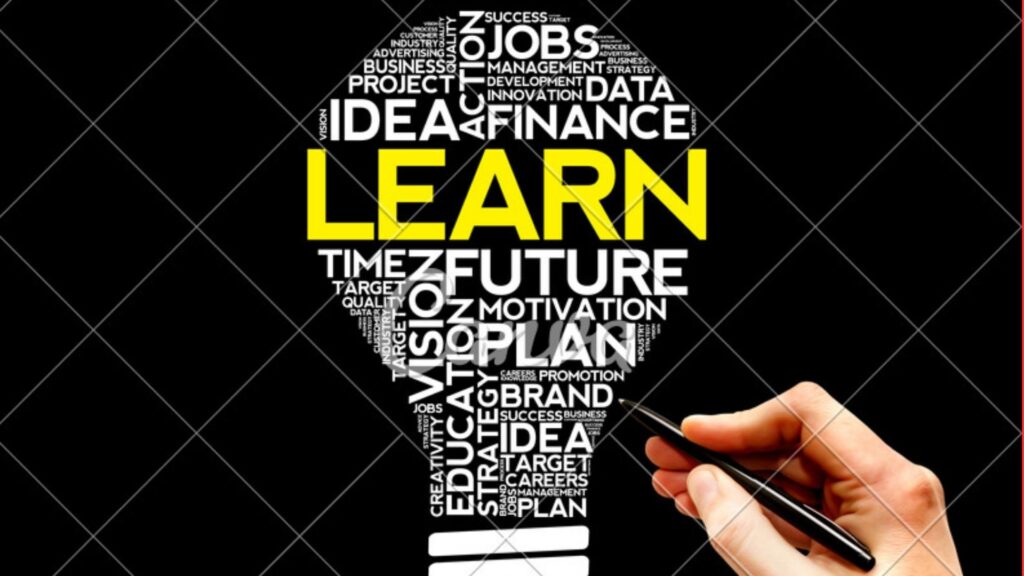learning : Define, Conditions and theories.
Learning
We have described in article :
Definition of learning
Types of learning
Theories of learning
Principal of learning
Domains of of learning

Definition of learning :
Define : Learning is any relative permanent change in behaviour that occurs as a result of practice. It means acquiring something new knowledge, new techniques, new skills, new fears and new experiences.
Types of learning :
Types : Bloom’s Taxonomy was created om 1956 under the leadership of educational psychologist Dr. Benjamin Bloom in order to promote higher forms of thinking in education.
- Cognitive learning (knowledge).
- Affective learning (attitudes).
- Psychomotor learning (skills).
Conditions affecting learning :
- Intelligence: Learning depends upon the intelligence or mental faculty of an individual. the activity of sensory adjustment and motor mechanism of the body. The mental faculty is related to heredity, nutrition and IQ Children with low IQ are poor learners. They may not learn at all.
- Age : The curve of learning reaches its peak between 22 and 25 years or age After the age of 30, there is a sharp decline. It has been appropriately said. You cannot teach an old dog a new trick.
- Learning situation : Physical facilities for learning viz, institutions, teachers, textbooks, audiovisual aids promote learning
- Motivation : In order to learn effectively, there must be adequate motivation. The powerful motives are encouragement praise, reward and success. These stimulate learning
- Physical health : A physically handicapped person. e.g. deat, dumb, chronically sick cannot learn
- Mental health : Worries, anxieties, and fears interfere with learning.
The theories of learning :
- Learning by conditioned reflex : It is well known that when dogs see food, they begin to salivate ; this is an inborn reflex. Pavlov, the Russian physiologist discovered that if a bell was rung when the dogs were fed, eventually, salvation could be induced by the ringing of the bell alone. This is called conditioned reflex.
- Trial and error : The lower animals (Apes & cats) learn by trial & error method. We also learn a good deal by this method. A child tries & tries again’ using a number of approaches until accidentally the ideal approaches become obvious.
- Learning by observation & imitation : A child copies or imitates gesture, facial expressions and movements such as walking. He learns language by observation & imitation. Observation is an important element in medical examination.
- Learning by doing : Here, there is coordination of muscular responses with sensory impulses Nursing skills (e.g. bed making applying bandages, giving bath) are leant by doing.
- Learning by remembering : We also learn by memorizing remembering dates, events, memorizing a poem, remembering faces etc.
- Learning by insight : When we are faced with a problem, we solve it by insight or mental exploration. When the doctor makes a diagnosis, some amount of insight is involved. It appears that human begins learn by a combination of methods.
- Demonstration ; Here a procedure is carried out step by step, slowly and accurately before an audience, the demonstrator ascertaining that the audience understands how to perform it. The demonstration involves the audience in discussion, when possible.
- Field experience : It involves a series of activities for diagnosing problems, planning procedures to solve them and implementing and evaluating these programmers. It provides opportunities to acquire with number of skills
- Problem solving.
Principles of learning :
- Learning is continuous, dynamic and ongoing process and has no required end.
- It is an individual matter, each learner learns his own way.
- Motivation is the key to learning.
- Relevance of learning experience should be clear to the learner and must be related to his needs of living.
- The learner should be able to communicate back to the teacher what he or she has learnt and as such feedback is important.
- In the learning process there should not be any authority-dependency relationship between the teacher and the student, it is cooperative and collaborative.
State domains of learning
Domains of learning : Conventionally learning is discussed under three domains –
1) Cognitive domain : It involves
- Information
- Development of knowledge.
- Intellectual skill.
2) Affective domain : based upon behavioural aspects this beliefs domain incorporates –
- Attitudes
- Emotions
- Enthusiasms
- Feelings
- Values
- Appreciation
- Motivations
3) Psychomotor domain : This skill based domain includes –
- Muscular skills.
- Coordination.
- Use of the motor skill areas.

I like what you guys are up also. Such smart work and reporting! Keep up the superb works guys I have incorporated you guys to my blogroll. I think it will improve the value of my site 🙂